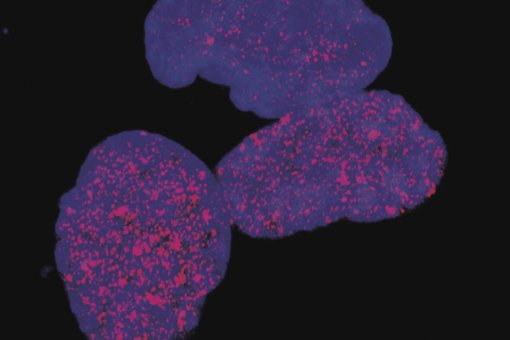Contact

The principal investigators of this study, Eduardo Soriano, at the IRB Barcelona, and Javier Sáez-Valero, at the Instituto de Neurociencias de Alicante, publish their findings in the journal “Proceedings of the National Academy of Sciences” (PNAS).
Reelin is a signalling protein that regulates the migration of neurons during encephalic development and it is essential for the correct organization, development and plasticity of the cerebral cortex. However, little is known about the role of this protein in adult brain. Recent studies performed by E. Soriano’s group showed that Reelin activates intracellular signalling pathways such as ERK, AKT, GSK3, all related to neuronal surviving and protein phosphorylation of the cytoskeleton.
Coordinated by Javier Sáez-Valero, at the Instituto de Neurociencias de Alicante (Universidad Miguel Hernández), and by Eduardo Soriano, at the Institute for Research in Biomedicine (IRB Barcelona), the study published in this week’s digital edition of PNAS (Proceeding of the National Academy of Sciences of USA) provides the first evidence of altered Reelin expression in Alzheimer’s disease (AD). This finding opens up new avenues for investigation into AD, a disease that currently affects over 800,000 people in Spain alone.
The study reports that Reelin gene and protein is increased in the brains of AD patients. This expression correlates with similar increases in cerebrospinal fluid but not in plasma samples, indicating that Reelin has distinct cell origins in these two tissue fluids. Other types of neurological disorders, such as frontotemporal dementia and progressive supranuclear palsy, also show increased Reelin levels in cerebrospinal fluid. This finding calls for specific studies to determine whether the molecular mechanisms modulated by Reelin are also altered in these kinds of diseases.
The next step will be to demonstrate whether Reelin overexpression is involved in the sequence of events that occurs during AD. To address this question, we are crossing conditional transgenic mice with overexpression of Reelin with animal models of AD", explains E. Soriano.
The following people also collaborated in this study: Arancha Botella and Salud Garcia, from the Instituto de Neurociencias de Alicante; Ferran Burgaya, Rosalina Gavín, Jesús Ureña and José A. del Río ,from the IRB Barcelona; Estrella Gómez, from the Fundación Jiménez Díaz; Jordi Peña, from the Hospital del Mar; and Rafael Blesa, from the Hospital de la Santa Creu i Sant Pau.
Three years devoted to studying Reelin
The research published today in PNAS is part of a three-year project headed by the researcher Eduardo Soriano. Head of the Developmental Neurobiology and Neuronal Regeneration Group at IRB Barcelona, in recent years he has directed several studies on alterations in Reelin signalling and their relation with AD. Thanks to funding from the Pzifer Foundation, his group has accomplished the objectives of this research line, which has produced six scientific articles, among these the latest one published in PNAS.
The next step in the research on Reelin overexpression in adult brains is to demonstrate whether the overabundance of this protein contributes to the development of this pathogenesis. To conduct this study, transgenic mice overexpressing Reelin have been generated and are currently being analysed. These mice are also being crossed with other mice that develop senile plaques, one of the characteristic neuropathological markers of AD.
The results of this study may shed light on new signalling pathways associated with Reelin and, therefore, may improve our understanding of the mechanisms related to AD and other neurodegenerative diseases.
IRB Barcelona
L’Institut de Recerca Biomèdica (IRB Barcelona) treballa per aconseguir una vida lliure de malalties. Desenvolupa una recerca multidisciplinària d’excel·lència per curar el càncer i altres malalties vinculades a l'envelliment. Treballa establint col·laboracions amb la indústria farmacèutica i els principals hospitals per fer arribar els resultats de la recerca a la societat a través de la transferència de tecnologia, i du a terme diferents iniciatives de divulgació científica per mantenir un diàleg obert amb la ciutadania. L’IRB Barcelona és un centre internacional que acull al voltant de 400 investigadors de més de 30 nacionalitats. Reconegut com a Centre d'Excel·lència Severo Ochoa des de 2011, és un centre CERCA i membre del Barcelona Institute of Science and Technology (BIST).


